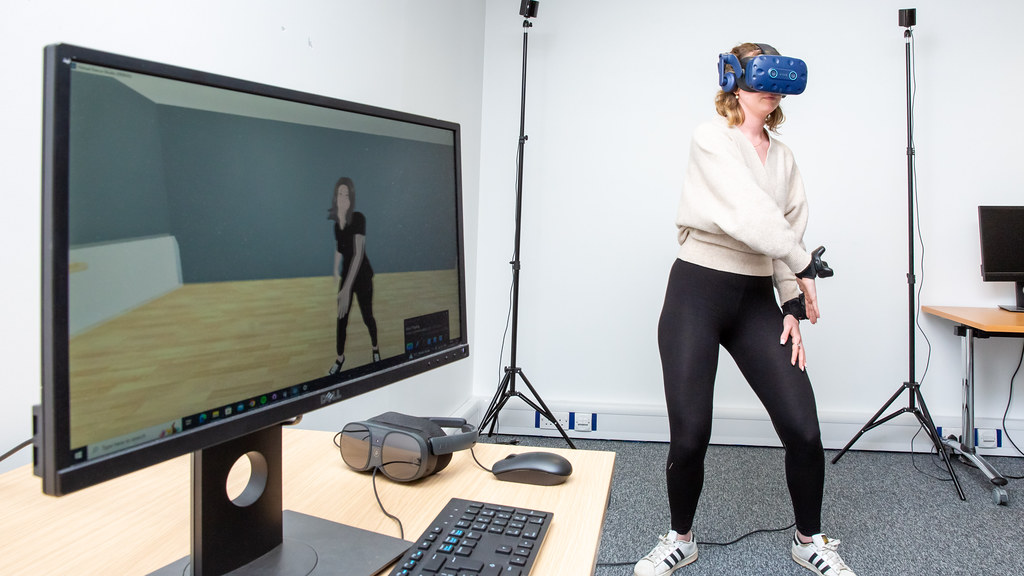Learning a new skill using VR works better if your virtual instructor is customised to look more like you, according to research by the University of Bath. The study suggests that even minimal customisation can make a difference in how well people learn in a virtual environment.
Virtual Reality is increasingly used by lots of industries to train staff, particularly where training in person is not practical, such as in dangerous environments or in health and safety scenarios. It’s also used for training fine motor skills such as in manual assembly lines.
These systems often use virtual instructors with a human shaped gender-neutral avatar, or only one or two options for avatar customisation.
Previous research by psychologists suggests that people learn better from trainers who are similar to them, so researchers from REVEAL, the research centre for immersive technology at the University of Bath, decided to investigate whether any effect could be seen with avatars with only basic customisation.
In their study, 97 volunteers learnt beginner’s dance moves from avatars either on a screen or using a VR headset. They learnt two routines – in one, participants could choose an avatar with similar physical characteristics to them such as hair colour, gender and skin tone.
Participants also learnt a second routine from an avatar that had different gender and physical characteristics from themselves.
The participants were then asked to rate how well they could imagine the different dance moves after the session and rate how physically similar they felt they were to the avatar instructor. The researchers also conducted interviews with some of the participants to understand how well they related to the avatars tested.
They found that, on average, the participants’ ability to imagine doing the dance moves was much more vivid when the moves had been demonstrated by an avatar that looked similar to them.
They also found that the effect was larger when training using VR rather than watching a TV screen as the experience was more immersive and participants had greater depth perception and different viewpoints compared with learning from a screen.
Izzy Fitton, a final year Doctoral student at the Centre for Digital Entertainment and REVEAL at the University of Bath, was first author on the study. She said: “Being able to pick an avatar with the same gender seemed to make the biggest difference, with most females preferring a female avatar.
“Other customisations to physical characteristics, such as a beard or similar hairstyle or skin tone were also important to many of the participants.
“Our study shows that even minimal customisation to increase representation could make a big difference in improving effectiveness of training programmes run in a virtual learning environment.”
The researchers plan to investigate whether customising avatars also makes a positive difference when learning fine motor skills, which could be useful when training factory workers on manual assembly lines.
The research, funded by the Centre for Digital Entertainment and PwC, was presented at the ACM (Association of Computer Machinery) CHI (Computer-Human Interaction) Conference – the premier international conference of Human-Computer Interaction – in Hamburg, Germany in April.

